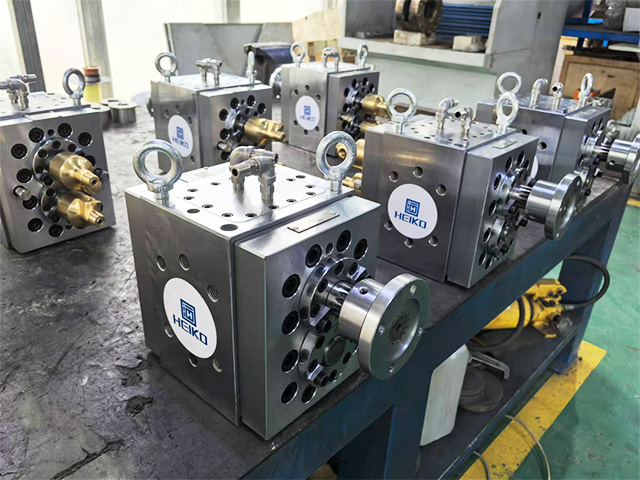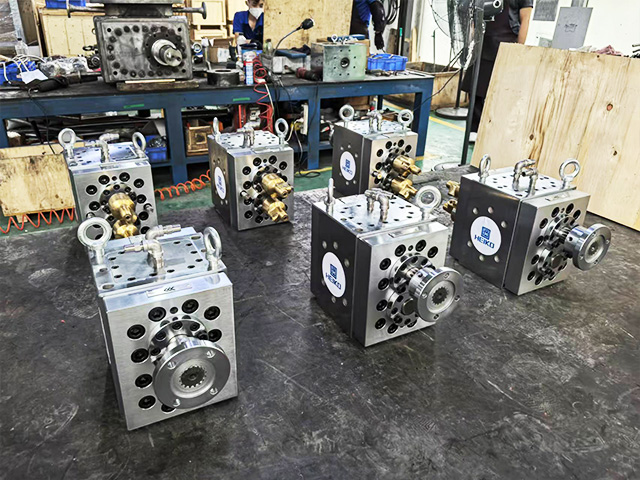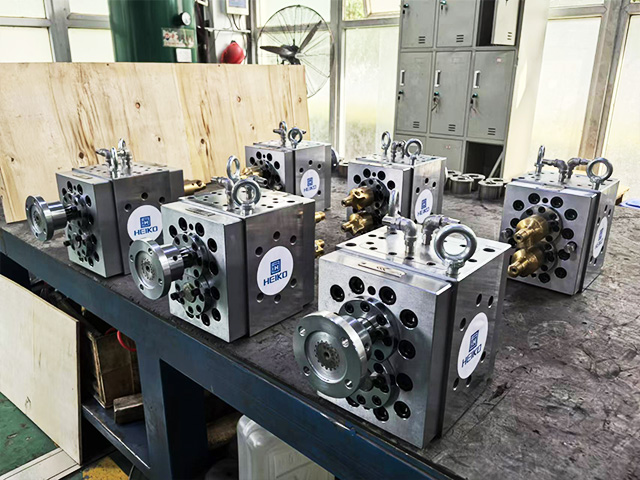Exploring Melt Pumps: A Legendary Application Across Rubber, Chemical Fiber, and Pipeline Chemicals
Melt pumps are a crucial component in various industrial applications, particularly in the rubber, chemical fiber, and pipeline chemicals sectors. They play a vital role in the processing and transportation of molten materials, ensuring smooth and efficient operations. Let's delve into the legendary applications of melt pumps across these industries.
1. Rubber Industry
In the rubber industry, melt pumps are primarily used in the extrusion process. They help to control the flow rate and pressure of the molten rubber, ensuring uniform and consistent extrusion. This is crucial for producing high-quality rubber products with uniform dimensions and properties.
Application: Melt pumps are used in extruder heads to control the flow of molten rubber into molds or dies.
Advantages: They provide precise flow control, reduce material waste, and improve product quality.
2. Chemical Fiber Industry
In the chemical fiber industry, melt pumps are essential for the spinning process. They help to convey and meter the molten polymer, ensuring a consistent fiber diameter and quality.
Application: Melt pumps are integrated into spinning lines to supply molten polymer to the spinnerets.
Advantages: They enable high-speed spinning with consistent fiber quality, improving production efficiency and reducing defects.
3. Pipeline Chemicals Industry
In the pipeline chemicals industry, melt pumps are used for the transportation of molten chemicals over long distances. They ensure a stable and continuous flow of chemicals, which is critical for the safe and efficient operation of pipelines.
Application: Melt pumps are installed along pipeline networks to pump molten chemicals from one location to another.
Advantages: They provide reliable flow control, reduce energy consumption, and enhance the overall efficiency of pipeline transportation.
General Advantages and Considerations
In addition to the specific applications mentioned above, melt pumps offer several general advantages across all these industries:
High Efficiency: They provide high volumetric efficiency, minimizing material loss and waste.
Durability: Constructed from robust materials, melt pumps withstand the high temperatures and pressures associated with molten materials.
Versatility: Melt pumps can be customized to fit various process requirements, making them versatile for a wide range of applications.
However, when selecting a melt pump for a specific application, several factors need to be considered:
Material Compatibility: Ensure that the pump materials are compatible with the molten material being pumped.
Flow Rate and Pressure Requirements: Select a pump that can meet the specific flow rate and pressure requirements of the application.
Maintenance and Service: Consider the ease of maintenance and serviceability of the pump, as well as the availability of spare parts and technical support.
In conclusion, melt pumps are a legendary component in the rubber, chemical fiber, and pipeline chemicals industries. They provide precise flow control, improve production efficiency, and enhance product quality. When selecting a melt pump for a specific application, it is essential to consider material compatibility, flow rate and pressure requirements, as well as maintenance and service considerations.
Email: sale@heikomachinery.com
WhatsApp: +86 13803717447
Previous:Laboratory Melt Metering Pumps: Application Areas and Performance Advantages
Next:Revolutionizing Rubber Processing with the New Rubber Extrusion Gear Pump


